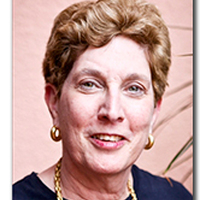Item
abstract
Judith Kaufmann
- Title
- Judith Kaufmann (Abstract)
- Interviewer
- Eli Bastiaansen
- Date
- November 25, 2023
- Location of the Interview
- The narrator was located in Falls Church, Virginia while the interviewer was located in McLean, Virginia. The interview took place over the phone with the audio recorded using “Voice Memos.”
- Length
- 50 minutes, 29 seconds
- Abstract
- Born in Chicago, Illinois, Judith Kaufmann moved to Cincinnati, Ohio before working internationally as a Foreign Service Officer. Kaufmann cited three formative experiences in her childhood. First, Kaufmann recognized the lessons of open mindedness and empathy she learned from her father as shaping her views of other cultures and groups. Second, she mentions how the Chicago Board of Education attempted to preserve school segregation by redrawing district lines; Kaufmann’s school in Chicago, Illinois was eventually integrated with the Black population receiving little to no support or aid from the school or Board. Lastly, she highlights her move to a public school in Cincinnati, Ohio where there was a significant amount of interracial socializing and interaction. Kaufmann then discusses the evolution of how people receive the news from relying on three to four television and radio stations to modern day in which individuals turn to social media. As a result of this development, the public is no longer forming opinions from the same common sources of information. Additionally, Kaufmann articulates that the Black Lives Matter Movement was too easily reduced to slogans and thus the Movement’s message was easily misinterpreted and distorted. Kaufmann also identifies the significance of the Covid pandemic in the rise of the Black Lives Matter Movement. Kaufmann joined committees and programs designed to support Black individuals and attempted to educate herself on issues of systemic racism in housing and education. Kaufmann questions the effectiveness of the Black Lives Matter Movement. She discusses the continued polarization of politics and the rise of identity politics that alienate groups and ultimately increase the racial gap. This interview is part of the Black Lives Matter Oral History Project (BLMOHR) to document reactions, opinions, and interpretations of the Black Lives Matter movement.
Part of Judith Kaufmann

